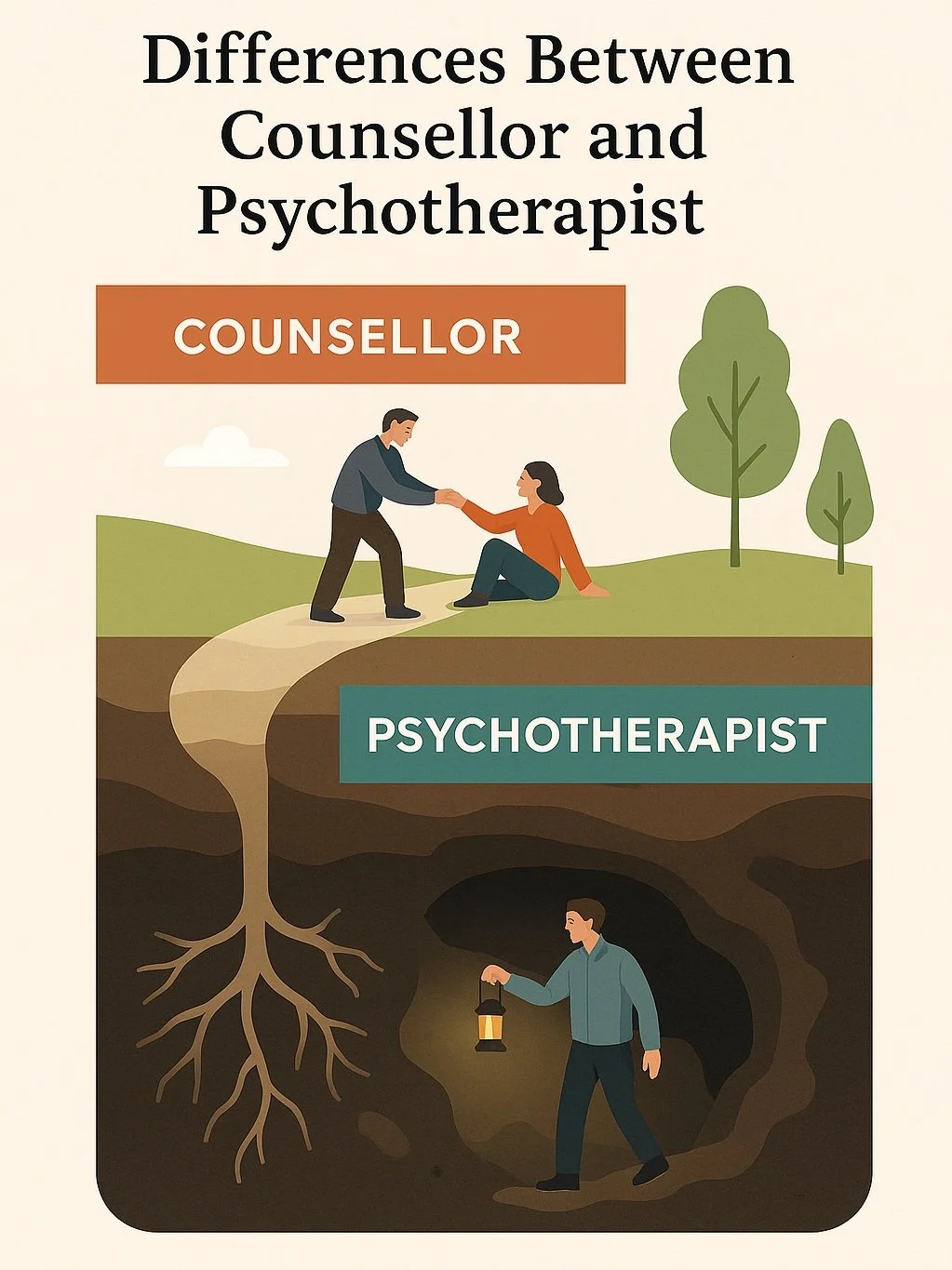What is the difference between Counselling and Psychotherapy?
The two terms are often used interchangeably but as a client it is important to know the difference.
The difference between Counselling and Psychotherapy
Counselling and Psychotherapy differ in depth, duration and focus
Counselling may be more appropriate if you’re dealing with a specific issue or situation and you need some practical support. Practitioners usually have a diploma-level or undergraduate-level qualification and are members of the BACP. Psychotherapeutic Counsellors have additional training in psychodynamic theory and can be accredited by the UKCP
Psychotherapy may be more appropriate for you if you are seeking deeper self-understanding or working through longstanding emotional difficulties. Psychotherapists are qualified to post-graduate level and will have received a rigorous clinical training with intensive supervision of their practice.
Why the Training Matters
Psychotherapists undergo extensive academic and clinical preparations, which typically includes:
A master’s degree in psychotherapy or related field.
Extensive personal therapy throughout their training.
In-depth study of psychological theories, including psychodynamic, humanistic, cognitive, and systemic models.
Training in working with complex mental health presentations, such as trauma, personality disorders, and early attachment difficulties.
This level of training enables psychotherapists to work at greater psychological depth, often with clients who have more entrenched or complex emotional difficulties.
When to Choose Which
If you are looking for short-term support with a specific issue, a qualified counsellor may be ideal.
If you are seeking to understand deeper emotional patters, process trauma, or engage in long-term personal growth, a psychotherapist may be more appropriate.

